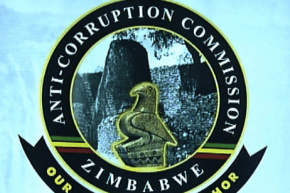
THE number of arrests for alleged corruption continued growing last week, but what is increasingly becoming obvious is how one-sided they are, with only people perceived to be aligned to the vanquished G40 being arrested.
President Emmerson Mnangagwa came into power promising to deal with corruption, while this is laudable, questions are beginning to rise on why only politicians from a certain Zanu PF faction are being arrested.
To add onto that, when the military intervened, they said they wanted to deal with “criminals” surrounding former President Robert Mugabe.
It is, therefore, rather questionable that people are being arrested over “small crimes” like beans, rice and television sets, when the expectation was that the new administration would go to the root of the corruption that Mugabe allowed to prevail in his time in power.
The nation expected to hear about the arrests of people involved in minerals looting and those who had allegedly funnelled large amounts of forex out of the country, but so far nothing of that sort has happened.
The anti-corruption crusade, with each passing day, now resembles a political witch hunt, more than a legitimate anti-graft campaign.
While the arrests of former ministers suspected to be involved in corruption is always welcome, there is desperate need for the net to be cast wider and more alleged criminals should brought to book.
Failure to do that will mean this crusade is not legitimate and the strategy to bring former political foes to court will soon unravel and, in the court of public opinion, those that are charged may soon be seen as victims rather than perpetrators.
- Chamisa under fire over US$120K donation
- Mavhunga puts DeMbare into Chibuku quarterfinals
- Pension funds bet on Cabora Bassa oilfields
- Councils defy govt fire tender directive
Keep Reading
The Zimbabwe Anti-Corruption Commission (Zacc) must also be seen to be doing its work quietly and independently, without being seen to be used by one political grouping or the other.
There are many cases that Zacc has brought to the courts in recent days, but it must not be seen as a vindictive exercise, but rather a legitimate legal route to ending corruption.
To observers, the arrests of a few former ministers is nothing more than tokenism and there is need for the Mnangagwa administration to walk the talk and bring anyone suspected of corruption to book.
There are many cases that have been reported in the past and the Auditor-General’s annual reports are a good place to start in the fight against corruption.
If authorities continue only prosecuting perceived former adversaries, the anti-corruption drive will be seen as nothing more than a charade and soon Zimbabweans will begin asking what happened to the pledge to combat graft.







